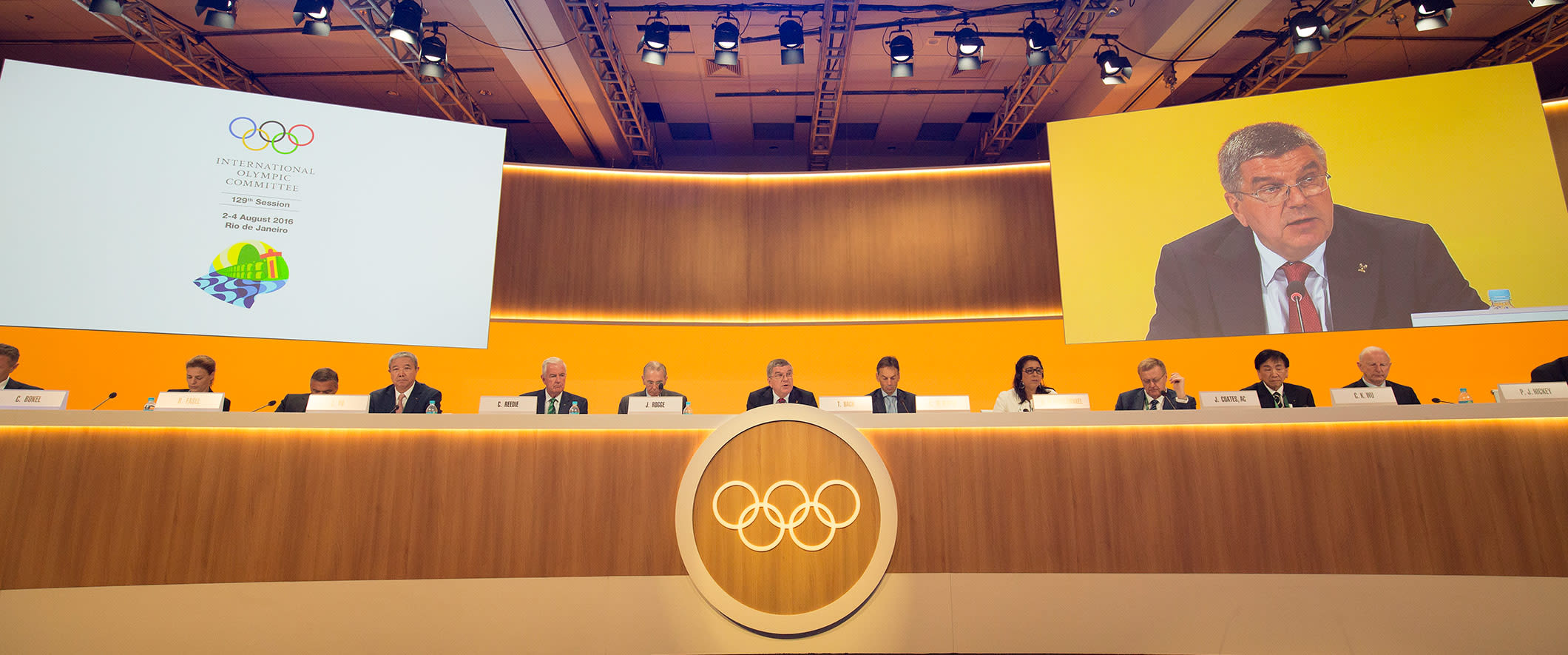IOC Session Reaffirms Response to Russia Doping Case
In opening remarks to the IOC Session today, IOC President Thomas Bach called on Russia to “live up to its commitment of a complete and comprehensive restructuring of its anti-doping system” but rejected calls for a total ban on Russian athletes.
“This blanket ban of the Russian Olympic Committee has been called by some the ‘nuclear option,’ and the innocent athletes would have to be considered as ‘collateral damage,’” he said. “Leaving aside that such a comparison is completely out of any proportion when it comes to the rules of sport, let us just for a moment consider the consequences of a ‘nuclear option.’ The result is death and devastation. This is not what the Olympic Movement stands for.”
The IOC President continued, “The Olympic Movement stands for life and the construction of a better future. This vision of a better future for and through sport is what needs to guide us. This vision includes a more robust and efficient worldwide anti-doping system.”
Responding to a report citing evidence of state-sanctioned doping in Russia, the IOC Executive Board unanimously agreed on 24 July to establish strict screening criteria for Russian athletes seeking to compete at the Olympic Games Rio 2016. The policy eliminated the presumption of innocence and instead requires Russian athletes to prove that they have not violated anti-doping rules.

President Bach said the outcome forces Russian athletes to “bear the collective responsibility for the alleged failures of the government,” but gives them an opportunity to demonstrate their individual innocence.
“With this respect for individual justice, we also send a positive message to clean athletes in Russia: you can be successful outside such a system. If you are clean, you are respected and rewarded. You can follow and you must follow your Olympic dream as a clean athlete,” he said.
The IOC President urged IOC members to unite behind an effort to further strengthen efforts to protect clean athletes.
“Engagement, not isolation, is the key, to build a functioning and more robust world-anti doping system. If we all contribute in this spirit then this painful situation can become a moment of catharsis in the fight against doping,” he said.
The IOC Session overwhelmingly expressed its support for the IOC Executive Board’s decision on 24 July concerning the participation of Russian athletes in the Olympic Games Rio 2016 by a show of hands, with just one member signaling opposition. The same vote also reaffirmed the principles behind the Declaration that resulted from the Olympic Summit on 21 June.